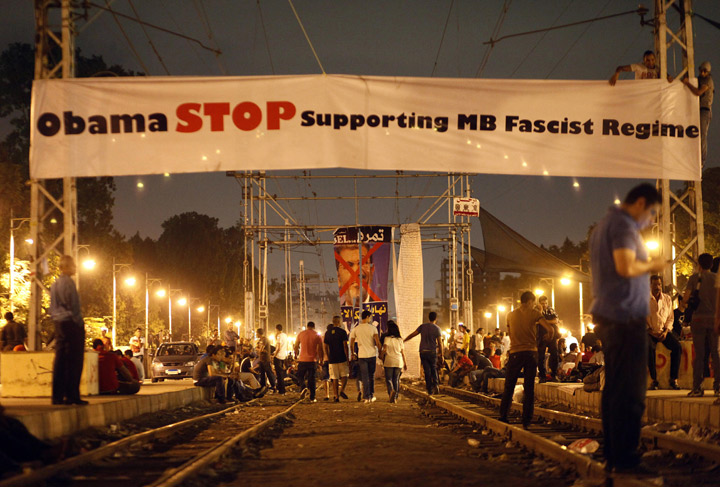DAR ES SALAAM, Tanzania and EDMONTON, Alta. – President Barack Obama is encouraging embattled Egyptian President Mohammed Morsi to respond to concerns of throngs of protesters seeking his removal from office amid a new wave of sexual assaults in Tahrir Square.

The White House confirmed in a statement Tuesday that Obama called Morsi on Monday while travelling in Africa. The call came as Egypt’s military said Morsi must meet the demands of millions of protesters who have taken to the streets.
For our ongoing coverage of the protests in Egypt, click here
The statement said Obama told Morsi that the United States is committed to the democratic process in Egypt and does not support any single party or group. The statement also said Obama underscored to Morsi that the current crisis can only be resolved through a political process.
Obama also told Morsi he’s particularly concerned about violence in the demonstrations, especially sexual assaults against women.
Sex assault reports were on the rise in Egypt during the country’s 2011 revolution, and led one woman to launch a social media initiative called HarassMap.
“We wanted to take action ourselves, and to give all the people around us a way to do something, and to stop being frustrated…and take it out into the streets, and try to make positive change in our society,” explained Rebecca Chiao in a January interview with Global News, when she was in Edmonton for the University of Alberta’s International Week.
CLICK HERE FOR A LINK TO THE HARASSMAP
On Tuesday, Chiao updated us on how HarassMap is doing amid the new wave of sexual assaults.
“We have about 1,300 reports,” she wrote in an email to Global News. “Mob assault in demonstrations is what we’re working on right now as part of the Operation Anti Sexual Harassment coalition. There were 18, I think, yesterday, 46 the day before and 9 the day before that.”
Those who have experienced sexual harassment are able to report it online or through a text message. The information is reviewed and plotted on HarassMap, while the person who reported it is sent resources like instructions on how to file a police report, access help from NGOs, or self-defence classes.
The co-founders, who previously had to finance HarassMap themselves and juggle it with their jobs, have been focusing on it full-time since mid-2012 after they partnered with the International Development Research Centre.
Chiao says at the beginning, volunteers who were going to talk to residents in their neighbourhoods were able to convince about eight out of 10 people to stand up against harassers.
“Now we find the whole community starts coming down and spontaneously joining the effort,” she said in January, and added that they are up to 700 volunteers as of July.
The initiative is also spreading to other countries. Chiao said 25 other countries, including Canada have expressed interest in tailoring HarassMap to their unique needs. So far, seven have launched: Palestine, Lebanon, Yemen, Bangladesh, Pakistan, Syria and India.
HarassMap is based on another application called Ushahidhi, created by two developers in Kenya. During the post-election violence in 2009, they felt there needed to be a way to report violence, and created this application to allow people to report problems. Since then, a number of other spin-offs, including HarassMap, have been created.
With files from Trish Kozicka


Comments